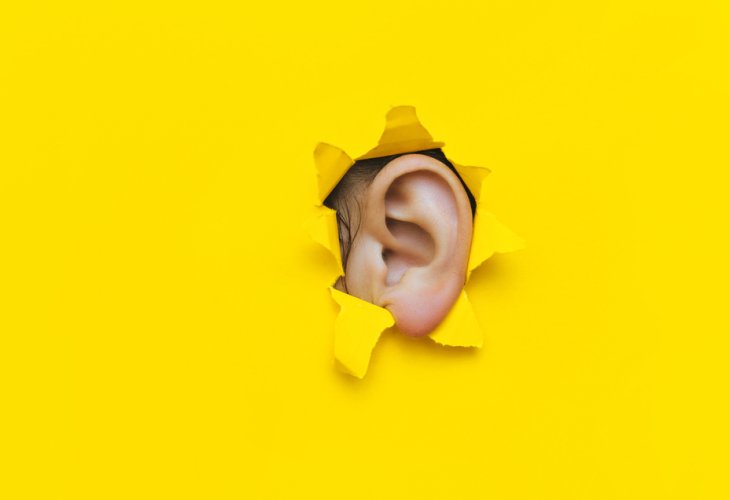Personality Development
Can I Become a Better Listener?
What gets in the way of listening and how we can improve this skill.
 (Photo: shutterstock)
(Photo: shutterstock)We don't always have the luxury of a meaningful conversation where the other person truly listens to us and shows real interest in what we say or feel. Often, when we listen, it’s because we are obliged to, but our minds are already busy crafting our response instead of actually focusing on what's being said.
We tend to think of listening as something passive, but if we rethink how listening should work, we can turn it into an active skill. This kind of listening helps us better understand not only what's being said, but also what’s left unsaid. It allows us to respond thoughtfully and gives the other person the gift of feeling truly heard and understood.
Who do we truly listen to?
When someone speaks to us, we often focus on ourselves—how their words reflect on us, whether they're criticizing us, or how we feel about what they're saying. The more emotionally involved we are during the conversation, the less we are truly listening because we're turning inward and paying attention to our own reactions.
When people sense they aren’t being heard, it creates a cycle. They stop listening to others too, not out of malice but because they've internalized a broken model of communication. This cycle damages relationships and interferes with genuine, healthy communication.
When we feel that nobody listens to us, we begin to lose the desire to speak up or share. If no one cares, why bother? Instead of a world of connected conversations, we end up with isolated individuals, each living inside their own emotional bubble.
How can we become better listeners?
Real listening requires emotional detachment. We need to show up to the conversation with a clear mind and a neutral heart. This means putting aside our judgments, our history with the person, and our own emotions. It means letting go of the need to relate everything back to ourselves.
To do this well, we need a quiet mind. We have to turn down the volume on our inner thoughts and reactions so we can truly hear the other person. When we do, they feel heard—and that’s one of the most powerful feelings we can offer someone.
In therapy, a good therapist listens far more than they speak. Real listening allows them to pick up on what’s said, what’s hinted at, and what is avoided. Because they remain emotionally neutral, they don’t get triggered or take things personally. This allows them to remain focused, rational, and helpful.
In our relationships, the same idea applies. If we react emotionally- feel hurt, take offense, or try to defend ourselves- the person who wanted to share ends up feeling misunderstood or even attacked. Then, instead of expressing their feelings, they spend time trying to justify them.
We need to clear out our emotional noise: guilt, shame, fear, self-doubt- anything that gets in the way of being present. Once we do that, we can listen like a therapist: with calm neutrality and full attention.
When we truly listen, we create a calm space for the other person’s experience, and interestingly, it has a calming effect on us too. We become more focused, grounded, and in tune with ourselves. The more we listen to others, the more we learn to listen to ourselves.
This is the beauty of true listening: it creates connection on both ends. When you genuinely listen, you give a gift to the other person, as well as to yourself.
Inbal Elhayani, M.A, is a certified therapist in NLP, mindfulness, and guided imagery.

